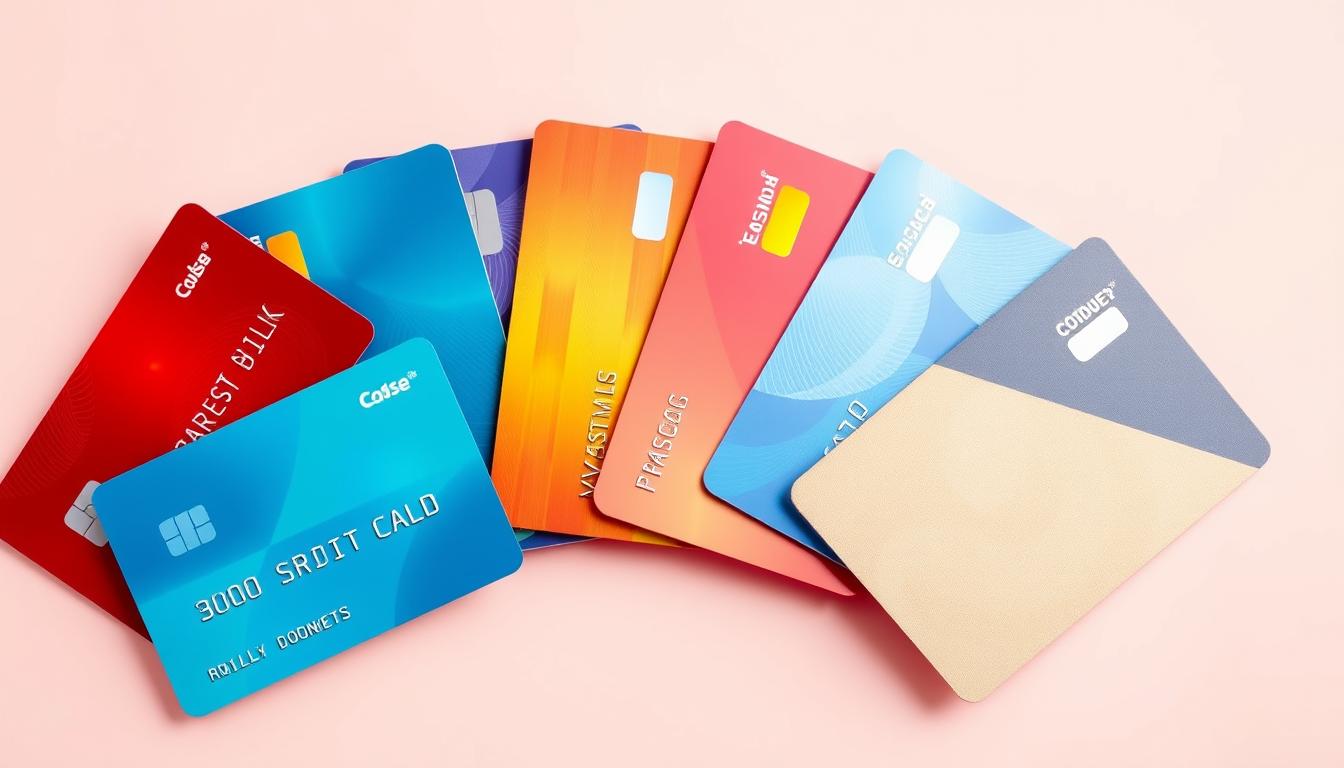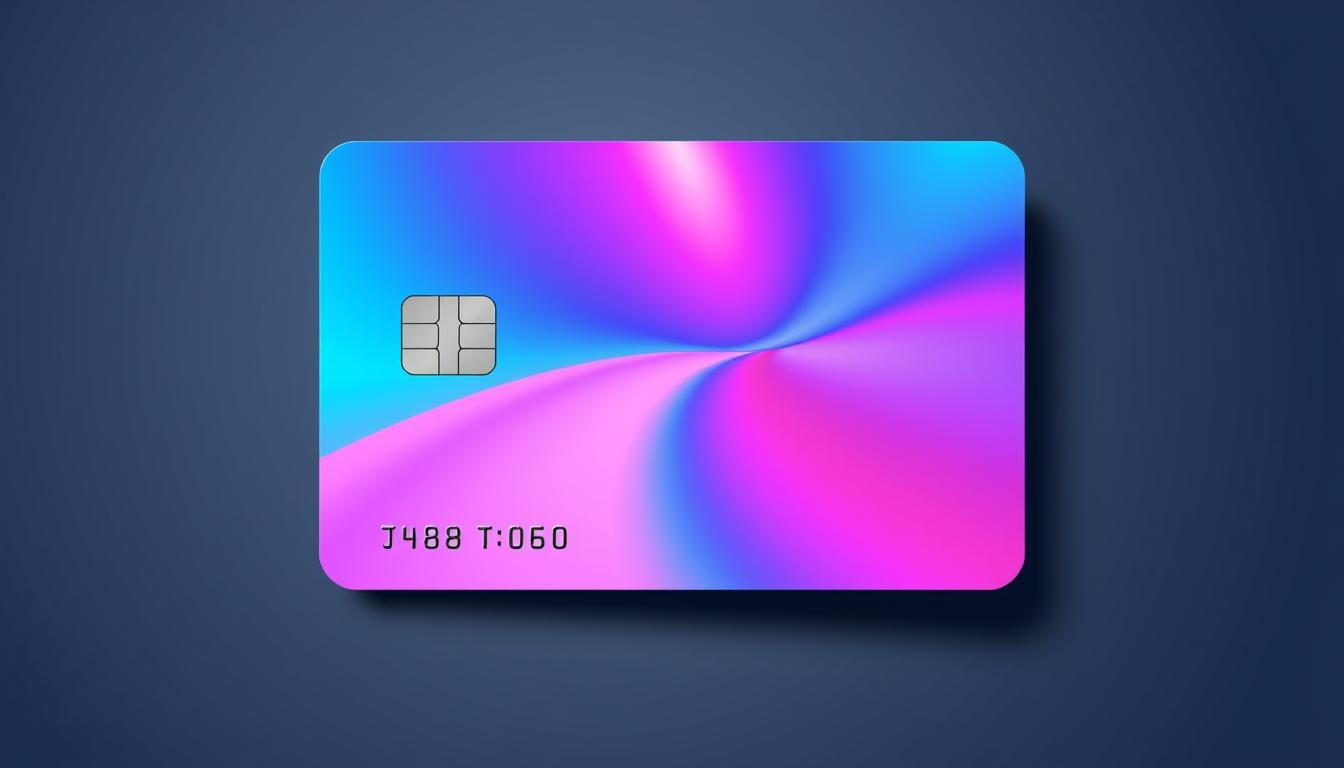Building a good credit history is key for financial stability. The Credit First Credit Card (CFNA) can help you start this journey. It offers features to build your credit profile safely and reliably.
Using a CFNA card responsibly can create a positive credit history. This is vital for getting loans, renting homes, or landing jobs. The card’s features protect your personal and financial data.
CFNA uses identity checks and secure connections. It also has paperless statements and two-step authentication. These measures keep your information safe as you build credit.
Key Takeaways
- The Credit First Credit Card offers a secure and reliable platform for building your credit history.
- Responsible usage of the CFNA credit card can help you establish a positive credit profile.
- CFNA provides features like identity verification, secure connections, and robust security measures to protect your personal and financial information.
- Building a solid credit history with the CFNA credit card can open up opportunities for loans, rentals, and employment in the future.
- Utilizing the CFNA credit card responsibly can be your first step towards financial independence and stability.
Understanding Credit Cards for Beginners
Credit cards are powerful financial tools. They can be tricky for newcomers to personal finance. Let’s explore the basics of credit cards, healthy credit scores, and avoiding costly credit card interest.
How Credit Cards Work
Credit cards let you buy now and pay later. Card issuers give you a credit line for purchases. You’ll get a monthly statement showing your credit card utilization.
You can pay the full balance or carry some over. Carrying a balance leads to interest charges. It’s smart to pay in full when possible.
The Importance of Credit Scores
Your credit score shows how trustworthy you are with money. Higher scores can get you better loan terms. Lower scores might mean higher interest rates or loan rejections.
A good credit utilization ratio helps build a strong credit score. This means using only a small part of your available credit.
Avoiding Interest Payments
Using credit cards wisely means dodging interest payments. Pay your balance in full each month to avoid credit card interest. This habit saves you money over time.
Keep your credit utilization ratio low and pay on time. These steps help you steer clear of credit card debt pitfalls.

Ways to Get Your First Credit Card
Getting your first credit card can be exciting. You have two main options: becoming an authorized user or applying for a starter credit card. Both can help you build credit history.
Becoming an Authorized User
An authorized user is added to someone else’s credit card account. This method can quickly establish your credit history. The account’s payment history and credit use will appear on your credit report.
Applying for a Starter Credit Card
If you can’t be an authorized user, consider a starter credit card. These include secured credit cards and student credit cards. They’re designed for people with little or no credit history.
- Secured Credit Cards: These require a refundable deposit, which becomes your credit limit. They report your payments to major credit bureaus, helping build credit.
- Student Credit Cards: Designed for college students, these cards have low credit limits and easy approval requirements. They’re great for first-time credit users.

“Starting with a secured or student credit card can be a great way to establish your credit history and work towards your financial goals.”
No matter which option you choose, use your card responsibly. Pay on time and keep balances low to build a strong credit foundation.
Identifying Key Cardholder Benefits
Choosing your first credit card requires identifying valuable benefits. These can include rewards programs, travel perks, and insurance coverage. Find a card that fits your lifestyle and financial goals.
Rewards Programs: Earn Cash, Points, or Miles
Credit cards offer rewards like cash back, points, or miles for spending. These can be redeemed for statement credits, gift cards, or travel expenses. Some cards provide higher rewards in specific categories, such as dining or groceries.
Valuable Travel Perks
Frequent travelers may enjoy perks like airport lounge access and hotel upgrades. Some cards offer rental car discounts. These benefits can enhance your trips and save you money.
Comprehensive Insurance Coverage
Many cards include insurance for cell phones and rental cars. They may also offer extended warranty on purchases. These features provide a safety net when using your card.
| Benefit | Description |
|---|---|
| Rewards Programs | Earn cash back, points, or miles for every dollar spent |
| Travel Perks | Enjoy benefits like airport lounge access, hotel upgrades, and rental car discounts |
| Insurance Coverage | Benefit from protections like cell phone insurance and rental car coverage |
Evaluate credit card benefits that matter most to you. This helps you find a card that maximizes your spending. It can also provide valuable perks to improve your financial experience.
credit first credit card
The Credit First credit card helps you build your credit history. It has no annual fee, making it cost-effective. The card also offers competitive interest rates for responsible borrowers.
Rewards Programs: Earn Cash Back as You Build Credit
This card includes a rewards program for cash back on purchases. It’s easy to understand and track your earnings. The cash back can help offset costs while you build credit.

“The Credit First card has been instrumental in helping me establish my credit history. The lack of an annual fee and the rewards program make it a great choice for those just starting to build their credit.”
– Emily, a Credit First cardholder
Responsible Usage: The Key to Maximizing the Benefits
Use the Credit First card wisely to get the most out of it. Make payments on time and keep your credit usage low.
Keep track of your spending to maintain good financial habits. This approach helps build credit and lets you enjoy the card’s benefits.
Responsible Credit Card Usage
Responsible credit card use is vital for a healthy financial future. It helps build a strong credit history. Two key aspects are budgeting and avoiding debt traps.
Budgeting and Tracking Spending
Effective budgeting is crucial for credit card users. Monitor your credit card usage to align spending with your financial means. Create a realistic budget and categorize your expenses.
Regularly review your credit card statements. This helps identify areas where you can reduce spending. Adjusting your habits can lead to better financial health.
Avoiding Debt Traps
Credit card debt is a significant risk. Carrying balances and missing payments can lead to costly interest charges. These missteps can also damage your credit score.
Pay your credit card bills on time. Aim to pay more than the minimum amount due. Limit using your credit card for unnecessary spending.
These responsible practices contribute to a healthy financial future. They help you avoid debt management challenges. Smart credit card use can be a powerful tool.

“Responsible credit card usage is the foundation for building a strong financial future.”
Top Credit Cards for Beginners
Starting your credit journey? Consider these credit card options for beginners. Secured and student credit cards offer unique benefits. They help you establish and build your credit history.
Secured Credit Cards
Secured credit cards are great for those with little or no credit history. They require a refundable security deposit, which becomes your credit limit. This deposit acts as collateral, helping you prove your creditworthiness.
Some secured credit cards offer rewards programs or no annual fees. These features make them practical for building credit from scratch.
Student Credit Cards
Student credit cards cater to college students and young adults. They often have no annual fees and may provide rewards or cashback. These perks make them attractive for beginners.
Using a student card responsibly helps establish a solid credit foundation. It can lead to better credit card offers in the future.
| Card Type | Annual Fee | Rewards | Credit Requirement |
|---|---|---|---|
| Secured Credit Card | $0 – $99 | Some offer rewards | No credit history required |
| Student Credit Card | $0 | Cashback, points, miles | Limited or no credit history |
Choosing the best credit cards for beginners depends on your financial needs and goals. Both secured and student cards can help build credit. They set you up for long-term financial success.
Safety and Security Features
Credit card security is crucial. CFNA prioritizes cardholder safety with robust security features. These protect your info and give peace of mind during transactions.
Identity Verification
Credit card applications involve thorough identity checks. You provide personal details like name and Social Security number. These are cross-referenced with databases to confirm your identity.
Secure Connections
Online and app transactions use encryption to secure your data. CFNA uses 256-bit encryption, an industry-leading standard. This protects your information from unauthorized access during transactions.
Two-Step Authentication
CFNA enhances credit card security with two-factor authentication. You’ll need a username, password, and one-time code. The code is sent to your phone or email.
CFNA ensures your financial safety through identity checks, secure connections, and two-step authentication. This creates a worry-free credit card experience for you.
Building a Solid Credit History
A strong credit history opens doors to better financing options. Two key factors build a robust credit profile: on-time payments and low credit utilization ratio.
On-Time Payments
Paying credit card bills on time is crucial for a positive credit history. Payment history significantly impacts your credit score. Make it a habit to pay bills before they’re due.
Credit Utilization Ratio
Keeping your credit utilization ratio low is vital for a solid credit history. This ratio shows how much available credit you’re using. Experts suggest keeping utilization below 30% to show responsible credit management.
Focus on on-time payments and low credit utilization to build a strong credit history. This approach will help you secure better financing opportunities in the future.
Conclusion
Getting your first credit card is an exciting financial step. Understanding credit cards and choosing the right one can help build a strong credit history. This sets you up for long-term financial success.
This guide has given you knowledge to make smart credit decisions. It covers how credit cards work and why credit scores matter. You can now confidently consider becoming an authorized user or applying for a starter card.
Responsible credit card use is key to financial health. Take advantage of cardholder benefits and maintain good budgeting habits. Stay alert to avoid debt traps.
Your financial future is in your hands. Make wise choices to build a solid credit foundation. This will serve you well as you move forward.
FAQ
What is the Credit First Credit Card (CFNA)?
How do credit cards work for beginners?
What are the options for getting a first credit card as a beginner?
What key benefits should I look for in my first credit card?
What features does the Credit First Credit Card (CFNA) offer?
How can I use a credit card responsibly?
What are some top credit card options for beginners?
How does the Credit First Credit Card (CFNA) prioritize safety and security?
How can I build a strong credit history with a credit card?
Source Links
- CFNA Credit Cards | Backed by Bridgestone – https://www.cfna.com/
- Customer Support | CFNA Credit Card – https://www.cfna.com/customer-support
- How To Get A Credit Card For The First Time | Bankrate – https://www.bankrate.com/credit-cards/building-credit/first-credit-card/

